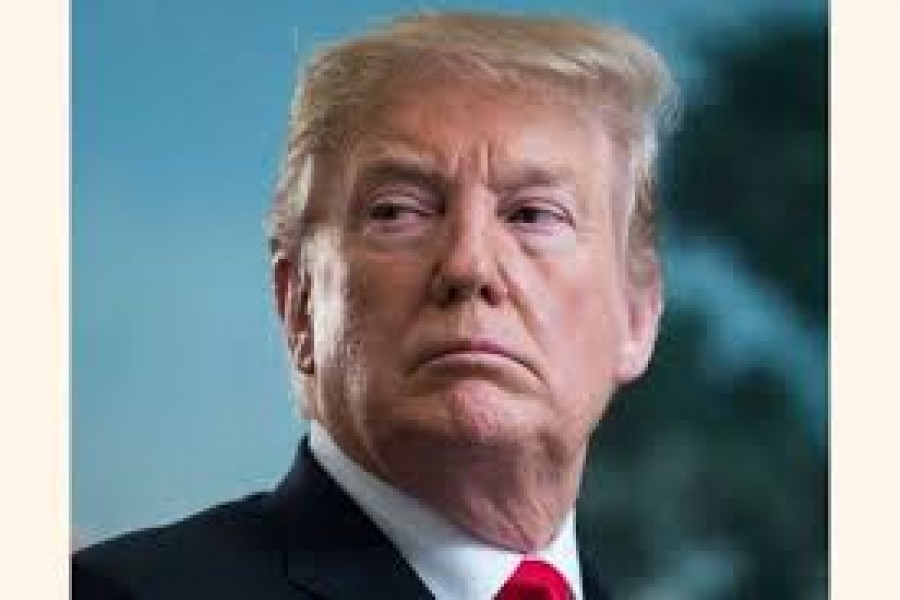US President Donald Trump's decision to sign a bill into law that interferes with China's internal affairs related to Hong Kong has cast a cloud over prospects for a highly anticipated phase one trade deal, with Chinese experts warning Washington of countermeasures if it attempts to link Hong Kong affairs with the ongoing negotiations.
After days of speculation, Trump on Wednesday (US time) signed the so-called Hong Kong Human Rights and Democracy Act of 2019, which was passed by the US Congress last week, into law. The move drew fury on Thursday from Chinese officials, who condemned the US for interfering with China's internal affairs and warned of effective countermeasures and dire consequences for the US.
Trump's move comes at a critically sensitive time for the talks between Beijing and Washington, which aim to reach a phase one agreement that could pave the way for defusing the 15-month, increasingly bruising trade conflict.
"[Trump] did this to reduce domestic voices that oppose him. But for China, this pertains to its core interests and that is a red line that cannot be crossed, so this will have an impact on the progress of the trade talks," Liang Haiming, a Hong Kong-based economist who closely follows the China-US trade talks, told the Global Times on Thursday.
When asked about the impact of Trump's latest move on the ongoing trade talks on Thursday, Gao Feng, a spokesperson for the Chinese Ministry of Commerce, referred to other government agencies' comments regarding the act, and said there had been no further updates in the talks other than a phone call on Tuesday.
Despite the constant interference of some US officials and politicians into Hong Kong affairs, trade talks between the two countries have been continuing. As recently as Tuesday, chief trade negotiators held a phone conversation and agreed to address the remaining issues for the phase one deal, injecting fresh optimism into the talks and lifting global markets.
However, some in the US are seemingly trying to link the Hong Kong act to the ongoing trade negotiations with China in order to gain leverage. Even Trump, who had been reluctant to weigh in on the Hong Kong situation and initially described the violent activities in the city as "riots," has shown ambiguity.
In a statement on Wednesday, Trump suggested that his administration could treat each provision of the act, which requires the US government to conduct an annual review of Hong Kong's democracy and autonomy, differently, in a move Chinese experts described as the US leaving room for discussion.
Trump also said on Tuesday that the trade talks were going "very well, but at the same time, we want to see it go well in Hong Kong," according to the Fox Business Network.
Countermeasures
"After signing the act, Trump will likely make some demands in the trade negotiations," Gao Lingyun, an expert at the Chinese Academy of Social Sciences in Beijing, told the Global Times on Thursday, adding that many with ulterior motives in the US do not want a trade deal to happen as it would give Trump breathing room in his endless domestic political battles.
However, an attempt to link an issue related to China's sovereignty to the trade talks will not sit well with China, and it could even result in dire consequences for Washington, experts noted.
"Don't even consider playing the Hong Kong card to get the Chinese government to make concessions. That would be impossible," Liang said, noting that there is not even room for discussion when it comes to the Hong Kong situation.
"Internal affairs are more important," Huo Jianguo, vice chairman of the China Society for World Trade Organization Studies, told the Global Times on Thursday. He said that the US will "definitely" face countermeasures from China.
Chinese officials have warned they will take effective measures against the US' Hong Kong act, as they have responded with tit-for-tat measures in the trade war.
Trump had apparently anticipated China's stern response, as he announced the signature of the bill on Wednesday - after the US stock market had closed and ahead of the Thanksgiving holidays, during which markets will remain closed.


